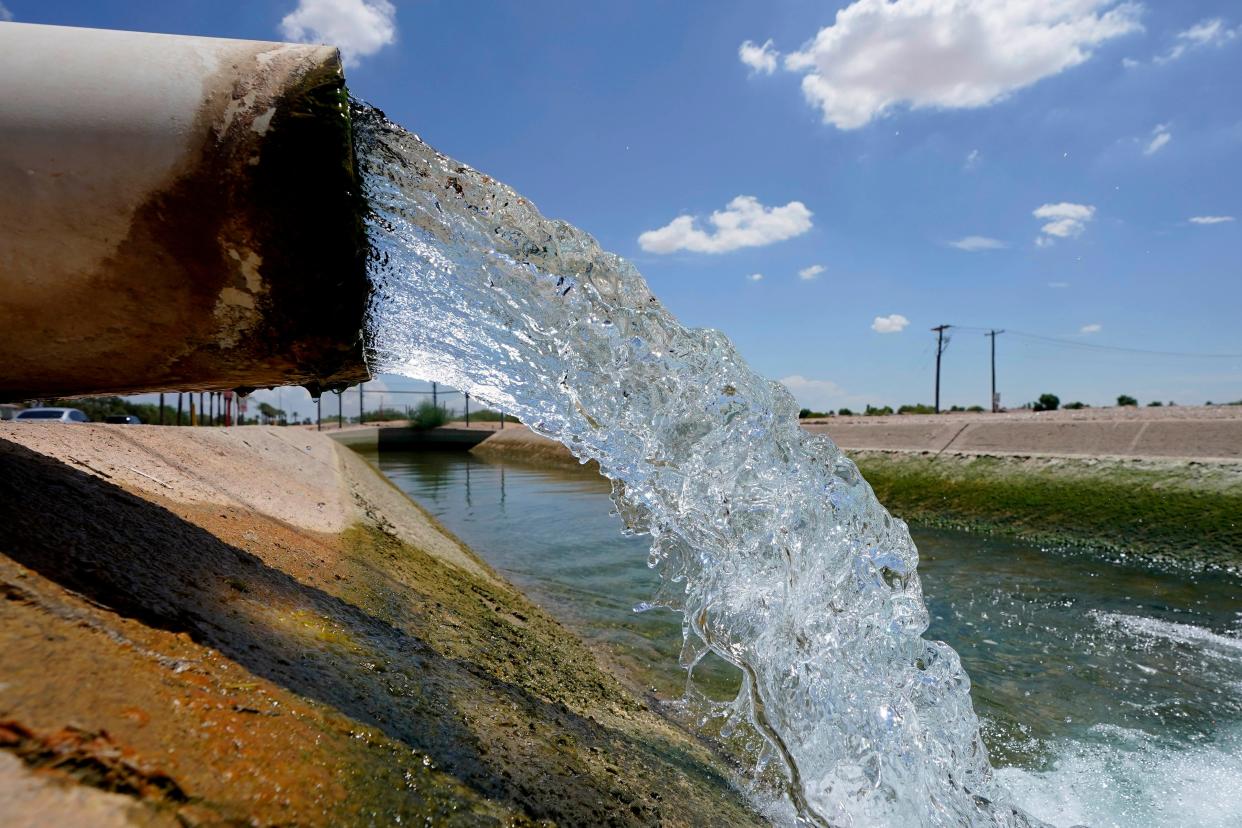Why central Arizona should be allowed to sell part of its groundwater

The Soviet Union had some of the world’s most productive farmland and no shortage of farmers.
Yet in the early 1930s, it suffered famine and mass starvation. In contrast, countries like Japan and Singapore manage to feed their people well despite having little farmland.
It is socialism, not geography, that makes scarcity inevitable.
There is a lesson here for Arizona.
Phoenix, Tucson need a water exchange
By restricting the transfer of water rights and relying on bureaucratic decision-making rather than market forces, Arizona risks repeating with water the dire consequences witnessed during the bread shortages in the Soviet Union.
Most Arizonans live in a groundwater Active Management Area where the right to pump water is often tied to the land.
This means that water can’t get to the other users, even if they are willing to pay more for part of that water than the current rights-holder makes by using it all.
That’s an absurd waste of water and money.
That is why I, along with Sen. Justine Wadsack and my other colleagues in the Freedom Caucus, will be introducing legislation in 2024 to create a water exchange for the Phoenix, Pinal and Tucson metropolitan areas that is grounded in the market-based principles on which America was founded.
These areas contain about 80% of Arizona’s population.
Instead of “use it or lose it” water rights confining the use of water to a narrow range of approved purposes there, we will allow anyone with pumping rights in these areas to sell or lease a portion of their water, so that this precious resource can get where it truly needs to be.
Selling water is a win-win for all
In exchange for this expanded property right, those who voluntarily choose to exercise it must reduce pumping from prior levels for the period of time that the water is being leased, providing a major assist to aquifer stability.
Similar plans have already been tried and have succeeded in places as diverse as Texas and Australia.
With free markets, everyone wins.
Farmers who participate in the exchange win with a new, voluntary choice that will allow them to increase their incomes. Farmers that decline to participate win because there will now be more water in the aquifer for them to continue their agricultural operations.
Can Hobbs solve our water woes? That depends on this
Suburban families win because the availability of additional supplies of water will mitigate the recent harsh inflation in the price of water. The environment wins because, as more people participate in the exchange, less groundwater will be pumped.
Homebuilders and buyers also win, because there will be more water available for new developments.
A water exchange could spread the wealth
The idea that exchanges are a necessary component of a functioning and robust water system is recognized by groups across the ideological spectrum. The idea also has resonance with Arizonans from every part of the state.
Some variation of it has been independently, and alternately, proposed by former rural Republican Sen. Don Shooter and the urban water boffins at the City of Phoenix.
Our state’s water crisis will not be solved by smart bureaucrats with good intentions but by tens of thousands of average people making decisions that are best for them and their families by serving their neighbors.
It is because such systems are in place that there is no shortage of bread in Arizona, nor of flat-screen TVs, nor of paper towels.
Water is precious, but it is not special. We are short of it only because we have abandoned the fundamental principles that have been the underpinnings of our abundance.
We cannot afford to do so any longer.
Arizona Rep. Alexander Kolodin, a Republican, represents District 3, which includes Cave Creek, Fountain Hills and parts of north Scottsdale. On Twitter, formerly X: @realAlexKolodin.
This article originally appeared on Arizona Republic: Phoenix and Tucson need a water exchange. Here's why

